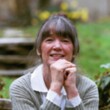West of Sunset
Description
A rich, sometimes heartbreaking” (Dennis Lehane) novel of F. Scott Fitzgerald’s last years in Hollywood
In 1937, F. Scott Fitzgerald was a troubled, uncertain man whose literary success was long over. In poor health, with his wife consigned to a mental asylum and his finances in ruins, he struggled to make a new start as a screenwriter in Hollywood. By December 1940, he would be dead of a heart attack.Those last three years of Fitzgerald’s life, often obscured by the legend of his earlier Jazz Age glamour, are the focus of Stewart O’Nan’s gorgeously and gracefully written novel. With flashbacks to key moments from Fitzgerald’s past, the story follows him as he arrives on the MGM lot, falls in love with brassy gossip columnist Sheilah Graham, begins work onThe Last Tycoon, and tries to maintain a semblance of family life with the absent Zelda and daughter, Scottie.Fitzgerald’s orbit of literary fame and the Golden Age of Hollywood is brought vividly to life through the novel’s romantic cast of characters, from Dorothy Parker and Ernest Hemingway to Humphrey Bogart. A sympathetic and deeply personal portrait of a flawed man who never gave up in the end, even as his every wish and hope seemed thwarted,West of Sunset confirms O’Nan as possibly our best working novelist” (Salon).
More Details
Excerpt
Similar Titles From NoveList
Similar Authors From NoveList
Published Reviews
Booklist Review
*Starred Review* It would appear to be a daunting task to write a biographical novel of one of our most iconic writers, yet O'Nan avoids every pitfall. Focusing on the last years of F. Scott Fitzgerald's life, when he was depleted both mentally and physically from overwork and too much drink, O'Nan, in understated prose, renders a heartbreaking portrait of an artist soldiering on in the face of personal and professional ruin. Ensconced at the Garden of Allah complex in Hollywood, surrounded by a group of lively, hard-partying actors and writers, including Dorothy Parker and Humphrey Bogart, Fitzgerald is relegated to rewriting B-movie scripts. He is in desperate need of the money to pay for Zelda's stay in a sanitarium. Their family vacations, in which he reports back to her doctor on her behavior, only underscore how far they have fallen from their once-glamorous life. He finds comfort, instead, in his relationship with gossip columnist Sheilah Graham, a self-made woman who took care of her alcoholic mother for years and casts a wary eye on Scott's endless promises to give up drinking. O'Nan's convincing characterization of a man burdened by guilt and struggling to hold onto his dignity is, at once, a moving testament to grace under pressure and an intimate look at a legend. HIGH-DEMAND BACKSTORY: An eight-city tour, national review coverage, and an avalanche of prepub buzz will back up this luminous novel from the prolific O'Nan.--Wilkinson, Joanne Copyright 2014 Booklist
Publisher's Weekly Review
The last few years of F. Scott Fitzgerald's life, when he lived in Hollywood (the title alludes to Los Angeles's Sunset Boulevard), are the subject of this earnest but only fitfully interesting novel from O'Nan (Last Night at the Lobster). The book inadvertently illustrates the truth of Fitzgerald's famous dictum: "There are no second acts in American lives." Conventional wisdom has it that Fitzgerald went back to Hollywood for money-surely true with his wife, Zelda, a patient at an expensive mental hospital in North Carolina-but this novel articulates a broader rationale: "He'd come west not just for the money but to redeem his previous failures here." There's something touching (if slightly surreal) about the author of The Great Gatsby hoping for redemption by writing film scripts, but O'Nan's Fitzgerald too often conjures the reader's pity, with his desperate need for money, fame, and love-from readers and romantic interests-and his alcoholism. The plot adds romantic intrigue to the mix in the form of Sheilah Graham, the L.A. gossip columnist (like Fitzgerald, a parvenu) who became Fitzgerald's lover. The book is thoroughly researched, featuring a huge supporting cast of famous players-Humphrey Bogart, Ernest Hemingway, and Dorothy Parker, among others-but it feels more like a television docudrama than a fully realized novel. (Jan.) © Copyright PWxyz, LLC. All rights reserved.
Library Journal Review
Prolific O'Nan (The Odds) explores F. Scott Fitzgerald's final years, when he worked unhappily as a Hollywood screenwriter. The novelist is on the skids after the publication of "The Crack-Up," his mournful, self-deprecating essay that drew scathing reviews and may have ruined his career. His frustrations with the superficialities of Hollywood and autocratic studio heads planted the seeds for his uncompleted work, The Last Tycoon. We get zinging repartee from the likes of Dorothy Parker, Robert Benchley, and Humphrey Bogart, but on the whole this novel is overlaid with sadness. VERDICT O'Nan taps into primary-source material on Fitzgerald to craft a realistic piece of historical fiction, inverting incidents from Sheilah Graham's 1957 tell-all Beloved Infidel to Fitzgerald's point of view and adopting the despairing tone of "The Crack-Up." Fitzgerald comes across as a haunting, multifaceted, sympathetic character whose Midwestern morality leaves him duty-bound to daughter Scottie and his institutionalized wife, Zelda, even as he begins his affair with Graham (which is chastely described). The slide into drugs, alcoholism, and the heart disease that shortened his life is tragic to behold; Fitzgerald fans will mourn his loss all over again. [See Prepub Alert, 7/14/14.] Reba Leiding, emeritus, James Madison Univ. Lib., Harrisonburg, VA (c) Copyright 2014. Library Journals LLC, a wholly owned subsidiary of Media Source, Inc. No redistribution permitted.
Kirkus Book Review
In his final, booze-addled years, F. Scott Fitzgerald tries his hand at Hollywood screenwriting, socializing with a colorful cast of characters that includes Humphrey Bogart, Dorothy Parker, Helen Hayes and Marlene Dietrich, while his troubled wife, Zelda, languishes in a North Carolina asylum.In contrast to a recent spate of historical novels written from the perspective of Zelda (Z by Therese Anne Fowler; Call Me Zelda by Erika Robuck; both 2013), O'Nan (The Odds, 2012, etc.) places Scott back at center stage, with a sympathetic portrayal of a troubled genius, a kind but deeply flawed man trying to stay on the wagon while keeping the peace between his unstable wife and their teenage daughter. After a span of nearly 20 years, Fitzgerald comes back into contact with his first love, the rich, unattainable Ginevra, clearly his model for Daisy Buchanan in The Great Gatsby, all while falling into an intense love affair with Sheilah Graham, a Hollywood gossip columnist many years his junior. Sheilah is a fascinating character in her own right, a wholly self-invented heroine who could have stepped out of the pages of one of Fitzgerald's own novels. O'Nan has masterfully re-created the feel and ambience of the Hollywood studio system in the late 1930s, where Fitzgerald is hired to doctor scripts that might never see the light of day and frequently finds himself defenseless against overweening producers and back-stabbing co-writers. Meanwhile, Zelda remains at the mercy of the all-powerful Dr. Carroll, existing at the center of an emotional tug of war between Scott and his disapproving mother-in-law. O'Nan has crafted an insightful glimpse into a sad period in Fitzgerald's life, as he fades into poverty, drunkenness and anonymity among a cast of notables, after his and Zelda's reign as America's literary golden couple and before his resurgence into universal acclaim. Copyright Kirkus Reviews, used with permission.
Booklist Reviews
*Starred Review* It would appear to be a daunting task to write a biographical novel of one of our most iconic writers, yet O'Nan avoids every pitfall. Focusing on the last years of F. Scott Fitzgerald's life, when he was depleted both mentally and physically from overwork and too much drink, O'Nan, in understated prose, renders a heartbreaking portrait of an artist soldiering on in the face of personal and professional ruin. Ensconced at the Garden of Allah complex in Hollywood, surrounded by a group of lively, hard-partying actors and writers, including Dorothy Parker and Humphrey Bogart, Fitzgerald is relegated to rewriting B-movie scripts. He is in desperate need of the money to pay for Zelda's stay in a sanitarium. Their family "vacations," in which he reports back to her doctor on her behavior, only underscore how far they have fallen from their once-glamorous life. He finds comfort, instead, in his relationship with gossip columnist Sheilah Graham, a self-made woman who took care of her alcoholic mother for years and casts a wary eye on Scott's endless promises to give up drinking. O'Nan's convincing characterization of a man burdened by guilt and struggling to hold onto his dignity is, at once, a moving testament to grace under pressure and an intimate look at a legend.HIGH-DEMAND BACKSTORY: An eight-city tour, national review coverage, and an avalanche of prepub buzz will back up this luminous novel from the prolific O'Nan. Copyright 2014 Booklist Reviews.
Library Journal Reviews
In late 1930s Hollywood, F. Scott Fitzgerald tries to reinvent himself as a screenwriter. Meanwhile, he was writing The Last Tycoon. Sounds like the kind of atmospheric study of on-the-edge characters that the highly regarded O'Nan pulls off so well.
[Page 58]. (c) Copyright 2014. Library Journals LLC, a wholly owned subsidiary of Media Source, Inc. No redistribution permitted.Library Journal Reviews
Prolific O'Nan (The Odds) explores F. Scott Fitzgerald's final years, when he worked unhappily as a Hollywood screenwriter. The novelist is on the skids after the publication of "The Crack-Up," his mournful, self-deprecating essay that drew scathing reviews and may have ruined his career. His frustrations with the superficialities of Hollywood and autocratic studio heads planted the seeds for his uncompleted work, The Last Tycoon. We get zinging repartee from the likes of Dorothy Parker, Robert Benchley, and Humphrey Bogart, but on the whole this novel is overlaid with sadness. VERDICT O'Nan taps into primary-source material on Fitzgerald to craft a realistic piece of historical fiction, inverting incidents from Sheilah Graham's 1957 tell-all Beloved Infidel to Fitzgerald's point of view and adopting the despairing tone of "The Crack-Up." Fitzgerald comes across as a haunting, multifaceted, sympathetic character whose Midwestern morality leaves him duty-bound to daughter Scottie and his institutionalized wife, Zelda, even as he begins his affair with Graham (which is chastely described). The slide into drugs, alcoholism, and the heart disease that shortened his life is tragic to behold; Fitzgerald fans will mourn his loss all over again. [See Prepub Alert, 7/14/14.]—Reba Leiding, emeritus, James Madison Univ. Lib., Harrisonburg, VA
[Page 79]. (c) Copyright 2014. Library Journals LLC, a wholly owned subsidiary of Media Source, Inc. No redistribution permitted.Publishers Weekly Reviews
The last few years of F. Scott Fitzgerald's life, when he lived in Hollywood (the title alludes to Los Angeles's Sunset Boulevard), are the subject of this earnest but only fitfully interesting novel from O'Nan (Last Night at the Lobster). The book inadvertently illustrates the truth of Fitzgerald's famous dictum: "There are no second acts in American lives." Conventional wisdom has it that Fitzgerald went back to Hollywood for money—surely true with his wife, Zelda, a patient at an expensive mental hospital in North Carolina—but this novel articulates a broader rationale: "He'd come west not just for the money but to redeem his previous failures here." There's something touching (if slightly surreal) about the author of The Great Gatsby hoping for redemption by writing film scripts, but O'Nan's Fitzgerald too often conjures the reader's pity, with his desperate need for money, fame, and love—from readers and romantic interests—and his alcoholism. The plot adds romantic intrigue to the mix in the form of Sheilah Graham, the L.A. gossip columnist (like Fitzgerald, a parvenu) who became Fitzgerald's lover. The book is thoroughly researched, featuring a huge supporting cast of famous players—Humphrey Bogart, Ernest Hemingway, and Dorothy Parker, among others—but it feels more like a television docudrama than a fully realized novel. (Jan.)
[Page ]. Copyright 2014 PWxyz LLC































